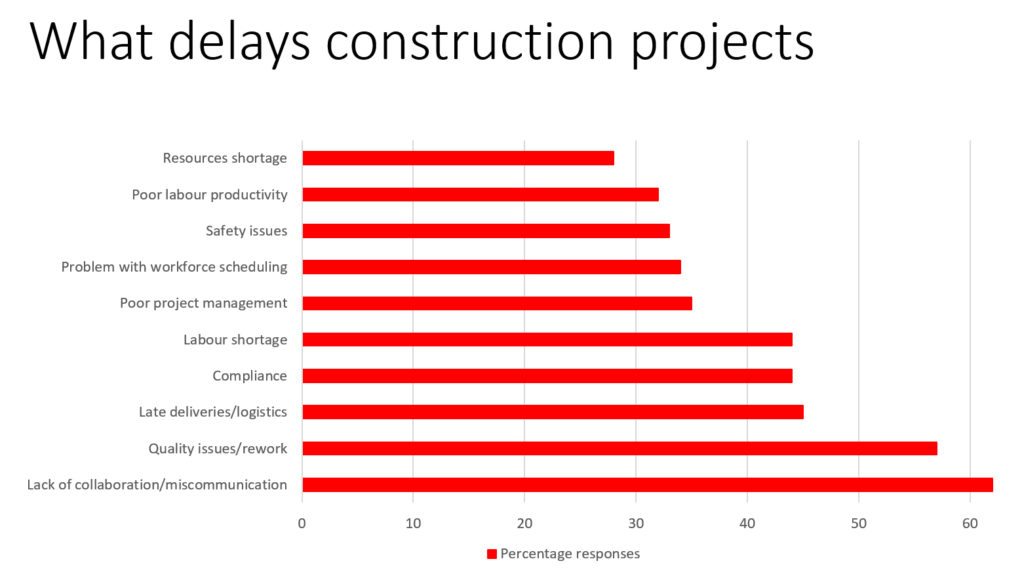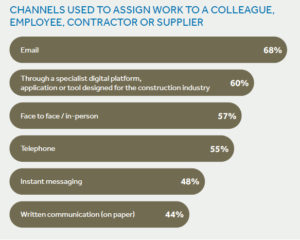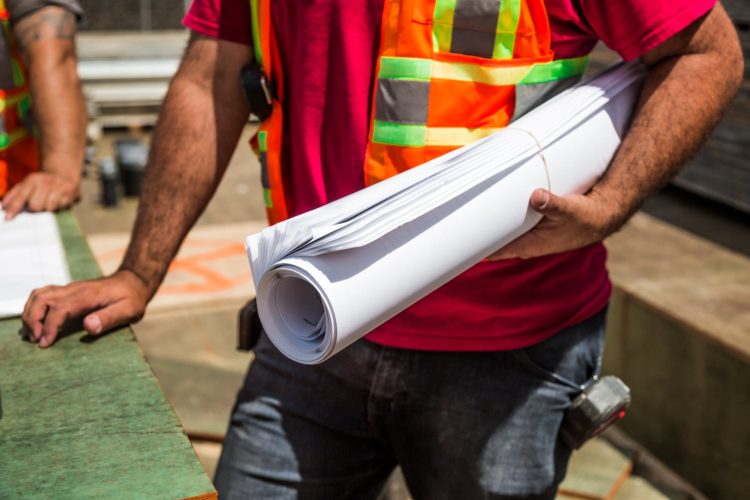It’s hard to imagine having digital transformation and construction industry in the same sentence. The latest Finalcad survey of 400 construction leaders in France, Spain, Singapore and Japan, revealed that with an average profit margin of only 2% there is little interest among companies in this sector let go of paper-based, manual workflows.
Finalcad ceo Frank Le Tendre commented that the construction industry’s continued reliance on outdated processes – both on- and off-site – is causing significant inefficiencies. This outdated work process is not sustainable
He adds that this is not sustainable in a sector where thin margins are a persistent issue. He notes that construction is way behind other industries when it comes to digitalisation.

The research, however, shows that many of the daily processes that take place on all projects are prime targets for transformation.
“From snagging to safety, there is no area that cannot be improved by optimising operations. In addition, as regions emerge from the downturn caused by the Covid-19 pandemic, those that have digitised will be able to act quickly to get back to business as usual,” he adds.
The spread of the COVID-19 pandemic may be giving leaders a nudge towards digital transformation workflows; this comes at a time when the slowdown from the impact of the Covid-19 global pandemic is showing how important it is to digitalise operations and support remote working. Further, not digitalising is significantly damaging companies’ ability to collaborate and having a direct impact on the bottom line, with 62% of respondents saying that a lack of collaboration is the single biggest cause of construction project delays.
The survey also investigates how universal tasks such as defect management and health and safety inspections are carried out. The findings show companies have several different methods and channels in place; 51% are using a combination of in-person, telephone, email, and/or paper to inform the person responsible for repairs during the quality process of the next action.

Worryingly, 53% are using unreliable text/SMS or instant messaging (e.g. WhatsApp) to document a safety incident or hazard. The lack of consistency in how this important information is recorded and shared leaves a considerable margin for errors and miscommunication – which can lead to broader safety risks, delays and cost overruns.
“The construction industry’s continued reliance on outdated processes – both on- and off-site – is causing significant inefficiencies. This is not sustainable in a sector where slender margins are a persistent issue,” commented Frank Le Tendre, CEO, Finalcad. “Construction has fallen behind other global industries like finance and retail when it comes to digitalisation, yet this research shows us many of the daily processes that take place on all projects are prime targets for transformation. From snagging to safety, there is no area that cannot be improved by optimising operations. In addition, as regions emerge from the downturn caused by the Covid-19 pandemic, those that have digitised will be able to act quickly to get back to business as usual.”
Another consequence stemming from the failure to digitalise is the difficulty in documenting and capturing data, resulting in invoices being unpaid when a contractor cannot prove work has been done; 90% of respondents across all regions said this ‘free work’ was a common problem. Moreover, construction companies are guilty of ‘reinventing the wheel’ on new projects; 59% say they create new templates for existing workflows some, most, or all of the time – a clear waste of time and resources.
Both results should be a major driver of digital transformation for construction managers, CEOs and developers – a centralised digital process enables continuous improvement and makes it far easier to proactively record extra work, as well as creating repeatable models.
Le Tendre says construction is facing short-term challenges following the COVID-19 pandemic. He is hopeful, however, that long-term prospects remain positive. He cites forecasts by the United Nations of two-thirds of the world’s inhabitants to live in cities by 2050, and smart city projects accelerating
“If they are to capitalise on these opportunities, construction companies need to digitalise now. Digital transformation removes existing silos and simplifies the challenge that construction companies face of juggling people, plans, skills and materials against a shifting schedule – improving profitability while increasing the satisfaction of final customers,” concludes Le Tendre.




